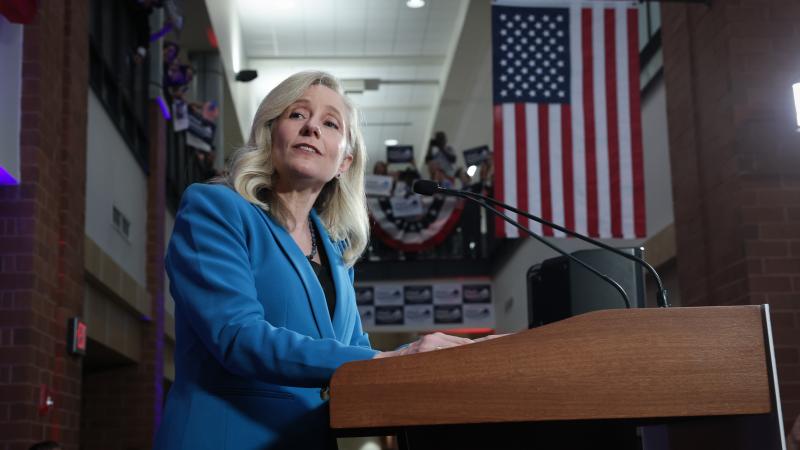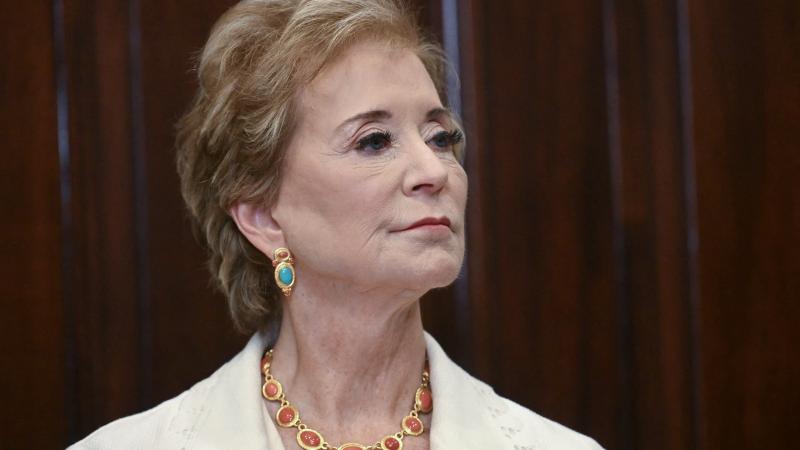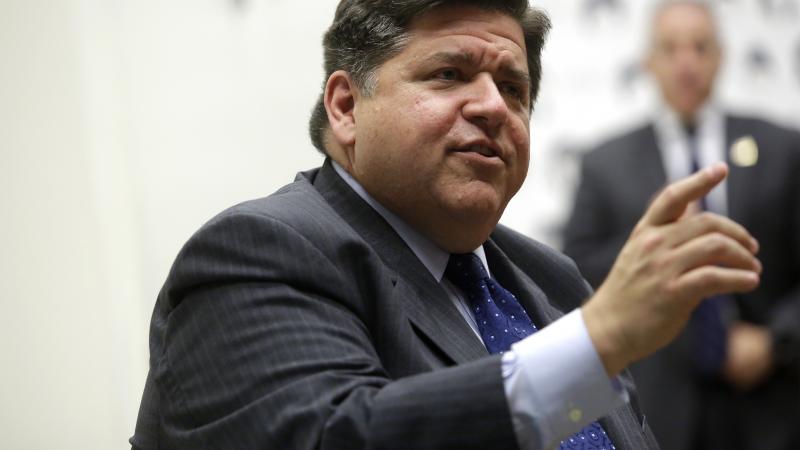Citizen journalist, who took his life after school district threatened him, vindicated in court
Maine school district had "blatant lack of [legal] standing to pursue relief under any of the statutory provisions" it used to threaten Shawn McBreairty for identifying male student using girls' bathroom, Trump nominee says.
Citizen journalist Shawn McBreairty didn't live to see his legal victory against a Maine school district for threatening to sue him for criticizing its alleged suppression of female student protests against a gender identity restroom policy, committing suicide two days after receiving what his lawyer called a "bogus" legal threat letter from a party's lawyer.
But by granting summary judgment to McBreairty's widow, Patricia, on behalf of his estate, and denying it to Brewer School Department and Superintendent Gregg Palmer, U.S. District Judge Lance Walker's ruling is heartening McBreairty's friends and allies in the parental rights movement and First Amendment law community.
The district's anti-hazing, bullying and workplace bullying policies, implementing state law, did not apply to McBreairty or "oblige, compel, or justify the conduct by the Brewer School Department and its legal counsel that gave rise to this civil action," Walker wrote.
He also mocked defendants' argument that the legal threat letter sent by its "retained counsel" did not constitute "municipal action," which "makes no sense" unless they are "toying with the notion" that law firm Drummond Woodsum – whose website opens with a land acknowledgment to indigenous people –"acted at their own direction."
Nothing gave the district or its counsel "license to threaten litigation whenever someone unaffiliated with the public schools speaks critically about a matter of public interest occurring in the schools and, in the process, identifies students or staff and criticizes them," the blistering ruling by the President Trump nominee says.
"I've never cried over a win before ... [sic] but I've never fought a case to ensure that my friend's legacy was that of a winner," lawyer Marc Randazza, a First Amendment legend with a colorful client list who has represented McBreairty in four cases involving school districts, wrote on X. "Shawn, I miss you bro."
He prevailed for McBreairty in a 2022 lawsuit against Regional School Unit 22, which paid him $40,000 for banning McBreairty from school board meetings based on his criticism of sexualized books in the school library, particularly one that Breairty repeatedly said featured "hardcore anal sex."
The 1st U.S. Circuit Court of Appeals denied McBreairty standing last year, however, when he sought a temporary restraining order and preliminary injunction against RSU 22's ban on "complaints or allegations" against school employees at school board meetings.
Randazza told Just the News Friday it's been a "bittersweet couple of days" but he's getting ready for trial on McBreairty's claims that the Brewer district violated his civil rights under federal Section 1983 and the comparable provision under the Maine Constitution.
He's seeking damages before the "politically diverse population" of Portland. "Sometimes it's a lot more fun to have one of these things in front of a jury."
The Center for American Liberty sponsored McBreairty's lawsuit before its founder, Republican superlawyer Harmeet Dhillon, became assistant attorney general for civil rights in the second Trump administration. "His widow fought on and today she, Shawn, and we all won as the First Amendment prevailed," Dhillon wrote on X.
Gender affirming doctors claimed 'medical necessity' to get kids 'fast-tracked'
Activists such as McBreairty finally have allies in an administration that is pushing back on schools for allowing students to use intimate facilities and compete in athletics according to their gender identity, and sometimes actively hiding gender transitions from their parents, the subject of a pending Supreme Court decision.
The Department of Education's Office for Civil Rights announced its latest Title IX sex discrimination investigation Tuesday against New York's Saratoga Springs City School District, at the request of New York GOP Rep. Elise Stefanik, for approving a resolution that puts gender identity over sex in facilities and athletics.
The Justice Department's Dhillon is emerging as a major threat to puberty blockers, cross-sex hormones and surgical procedures for gender-confused minors.
"These kids become adults with long-standing regret … and irreversible damage to their bodies," she told Epoch Times. "We're beginning to do some law enforcement" against so-called gender affirming practitioners, some of whom evaded COVID-19-related hospital restrictions on lucrative procedures by claiming "medical necessity" to get kids "fast-tracked."
Blue states are fighting back, unexpectedly led by largely white and rural Maine and Vermont but increasingly the blue redoubt of the Rocky Mountains.
Colorado lawmakers approved legislation Tuesday to punish people for persistently referring to transgender people by their pre-transition names and sex pronouns, though they removed a child custody provision that prompted vast opposition, as well as a "shield" provision refusing cooperation with non-affirming states' custody decisions.
Democratic Gov. Jared Polis expressed concern about the since-nixed provisions but didn't indicate whether he'd sign HB 25-1312, with a spokesperson telling the Denver Post he appreciated the changes and "will review the final version when it reaches his desk."
'A fair inference' superintendent was 'directly involved'
McBreairty's legal battles with school districts were an early example of COVID-era fights between citizen activists and New England institutions, public and private.
Teenage whistle-blower Samson Cournane survived legal threats from a Maine hospital last fall and inspired lawmakers to expand the state's law against so-called strategic lawsuits against public participation. Rhode Island mother and lawyer Nicole Solas has made enemies from teachers unions to the state attorney general for her public records requests.
Patricia McBreairty's case on behalf of her husband's estate is still scheduled for trial July 2, with the final pretrial conference set for May 28, according to the docket.
Judge Walker gave the district an incentive to settle by suggesting Superintendent Palmer might not receive qualified immunity from personal liability because of "a fair inference that Palmer was directly involved" in sending the "threatening email" to McBreairty.
Randazza told Just the News that while "we haven't received any overtures from them" in light of Walker's skepticism of qualified immunity, it was notable that the lawyer whose name was on the threatening letter, Melissa Hewey, withdrew from representing the district the day after Walker's ruling.
He recommended reading their heated exchanges in the March 14, 2024 and Dec. 4, 2024 preliminary injunction hearings on whether Hewey believed she was making threats against McBreairty.
Walker dismissed Principal Brent Slowikowsky and teacher Michelle MacDonald from the litigation for playing no discernible role in the email, the only wins for the defendants. McBreairty's widow only sought summary judgment on her claim that the district's policies could not apply to her husband, leaving the rest for trial.
The school responded strongly to an essay McBreairty published on YourNews criticizing the district for letting a male student who identifies as a girl "enter female spaces" and for not investigating rumors of "touch[ing]" and sexual assault against the student.
MacDonald threatened to have female students "charged with hate crimes" for circulating a petition to revoke the male's access to the girls' bathroom, and Slowikowsky ordered them to stop, according to McBreairty, quoting the girls' claims.
McBreairty named the male student and posted an image he obtained, "seemingly" taken by a student, of the male with three females in the girls' bathroom, whom Judge Walker emphasized were all "fully clothed."
He also shared information from MacDonald's own retaliation lawsuit against the district related to her transgender advocacy, in which MacDonald noted she has a transgender child.
The district demanded through Drummond Woodsum that McBreairty remove the male student's picture and name and references to MacDonald's daughter, whom he identified as "a girl who pretends to be a boy on the male track team" at a different school, as privacy invasions and defamation, "or we will be forced to take further action against you."
The same firm had earlier threatened McBreairty on behalf of the Hermon School Department for criticizing an employee and requesting public records, which Judge Walker said was relevant to whether a "person of ordinary firmness" was likely to be "silenced by the threat" of sanctions against him under invoked school policies. McBreairty's appeal was pending in the Hermon case when he died, so it was mooted.
The district also "advised McBreairty of Maine criminal law and tort law" and "McBreairty was aware that the School Department had even threatened some of its students with prosecution or civil liability for participation in a petition drive," so whether the letter is "frivolous or not, there is a fair inference McBreairty correctly anticipated" he'd be sued, Walker said.
No 'new era of shielding the populace from the harsher overtones of moralist invective'
Defendants haven't demonstrated they only targeted unprotected content under the First Amendment in McBreairty's essay, the judge said. Supreme Court precedents cannot "fairly be read to usher in a new era of shielding the populace from the harsher overtones of moralist invective simply because it could qualify as bullying or hazing" at school.
"[T]he irony in this case is palpable" given that the district responded to purported bullying by seeking to censor McBreairty as "some kind of public service," despite "blatant lack of [legal] standing to pursue relief under any of the statutory provisions it cited," the judge said.
Contrary to the district's maximalist view of invasion of privacy, "the identification of persons engaged in public conduct of which the public has a legitimate concern is the kind of information a community ordinarily exchanges openly without fear of liability," Walker wrote.
In a footnote that takes up nearly a page, Walker allowed that municipalities could have First Amendment rights, given their similarity to individuals under many laws, but countered that threatening legal action on behalf of constituents "for the very purpose of curtailing private speech runs against the grain of First Amendment bedrock."
The city and school district "may well be genuinely concerned over speech that defames or invades the privacy of one or more members of its community," but harmed individuals themselves must bring those cases, he wrote.
The Facts Inside Our Reporter's Notebook
Videos
Links
- committing suicide two days after receiving
- granting summary judgment to McBreairty's widow Patricia
- Drummond Woodsum â whose website opens
- colorful client list
- "Shawn, I miss you bro."
- Dhillon wrote on X
- subject of a pending Supreme Court decision
- against New York's Saratoga Springs City School District
- request of New York GOP Rep. Elise Stefanik,
- Epoch Times
- unexpectedly led by largely white and rural Maine
- Vermont
- removed a child custody provision
- Denver Post
- Teenage whistleblower Samson Cournane survived legal threats
- Nicole Solas has made enemies from teachers unions to the state attorney general
- McBreairty published an essay
- threatened McBreairty on behalf of the Hermon School Department















